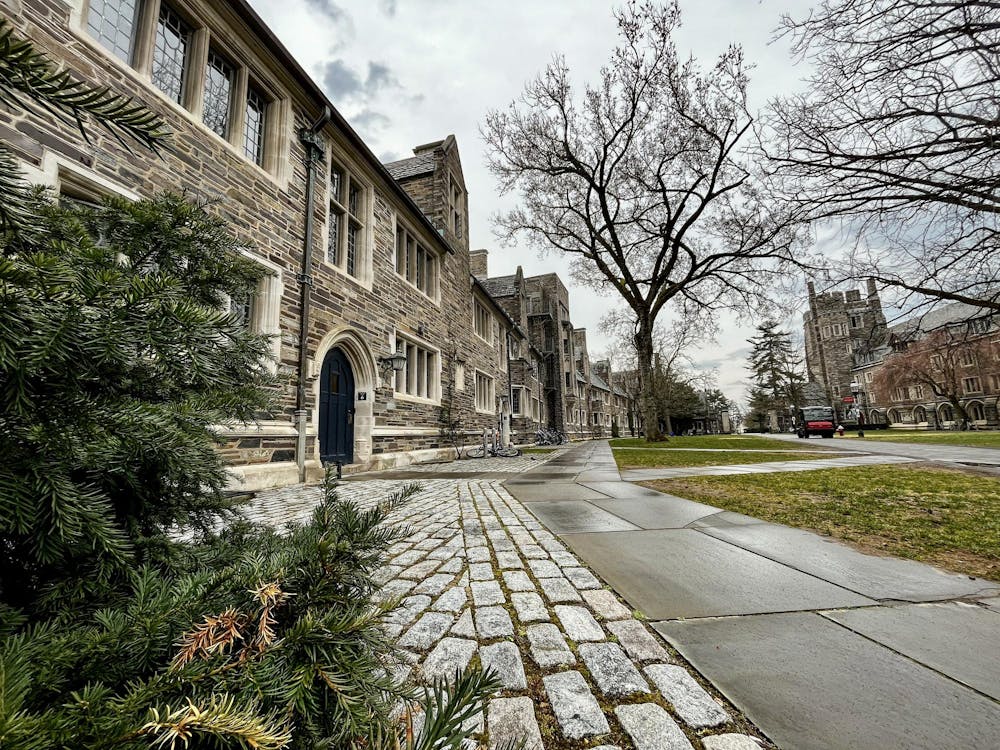The following is a guest submission and reflects the author’s views alone. For information on how to submit a piece to the Opinion section, click here.
Housing accommodations made my Princeton experience possible. While other students might have preferred a single, I and many others needed one. I am so grateful to Undergraduate Student Housing for allowing us to be prioritized in the room draw process to receive a room type that fits our needs. Having a single made my freshman year feasible. Unfortunately, I have recently learned just how terribly unaccommodating the housing and the room draw process can be.
The University’s current treatment of students with housing accommodations is unacceptable. For these students, room draw can deepen feelings of isolation and exclusion from the rest of the student population. A program that was supposed to emphasize equity has turned into something that does the opposite since students with accommodations are expected to accept any room offer or else lose their necessary accommodations.
On Feb. 16, I, along with others with accommodations, received our draw assignments. While non-accommodated room draw involves forming groups and being assigned a time to frantically select a room of the group members’ choice, accommodated housing simply works by submitting a request for accommodations, getting approved, and then being assigned a room each draw cycle. As a freshman, it did not originally dawn on me that I would have no say at all in my placement for the next year. Thus, when I checked the housing portal, I was rather disappointed with my assignment.
Many students tend to argue that students who get accommodations are put at an advantage for room draw. When I tell people that I don’t need to draw because I have a guaranteed single, the first response is usually a comment on how lucky I am.
Yet, while I am grateful that my accommodations provide me a single, I also recognize that is frankly the bare minimum Princeton can do for me — I need an accommodated room. Anyone with accommodations needs an accommodated room. Because of my need for rooms that fit my accommodations, I am already severely limited in the rooms that I can comfortably live in. However, my accommodations do not limit me to the extent that only one room in my entire college can accommodate me. In fact, rooms that match both my location preferences and accommodations still appear on the available rooms list, even after all students with accommodations have been placed into a room. There are other options, options that I would have happily chosen to live in, if given the opportunity.
It is inherently a disadvantage that students without accommodations are allowed privileges not afforded to those with accommodations. Such students can pick both their room’s size and location, to a certain extent depending on draw time. Yet, I was informed in a phone call with a Housing Engagement Specialist who said the only way to change my rooming situation was to reject my accommodated room, and enter the regular room draw where I would not be guaranteed my accommodations. Through this process, Princeton is creating a situation in which some students get to choose their room and others are assigned one, choosing between housing and life at Princeton being comfortable or intolerable. I, or any student, should not have to choose between accepting what room I have been offered or losing my accommodations.
This problem is not unique to me. My current suitemate was placed in a jack-and-jill in a very noisy area for next year, and while her accommodations technically do not list anything about noise, it is understandable that she would not want to live there. Another student with accommodations was given a room on the first floor in an entirely different building from her “pre-draw, pull in” roommate — a roommate that can join a pre-draw housing contract with or near a student with accommodations — and was consequently forced to choose a room that did not fit her accommodations.

There are easy solutions for this problem. The easiest way to solve this would be by allowing students to see all of the rooms that match their accommodations. Students would be allowed to to rank their preferences among their options, similar to how non-accommodation room draw allows students to pick their most preferred available room. University Housing could then divide rooms by acknowledging individual student preferences and comparing them with those of other students. Housing would then attempt to give students a room that ranks high on their list, especially if students have diverse location preferences.
While I will most likely be stuck in a room I do not want to live in, at the very least the process should be amended for future students. Students with accommodations are forced to take the room they have been offered, even when it presents them with serious disadvantages, or otherwise lose a key aspect of their safety at Princeton.
Guest contributor Reed Marthers is a freshman intending to major in SPIA from Atlanta, Ga. You can contact her at rm6521@princeton.edu.









